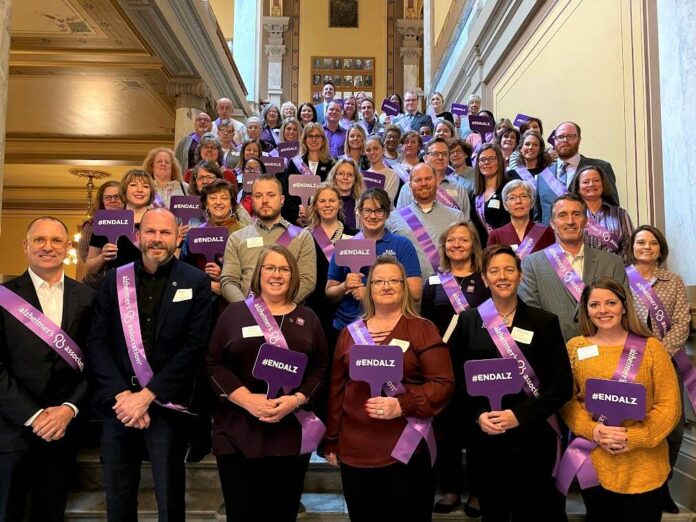Volunteer advocates from across Indiana will urge lawmakers to pass legislation to help Hoosiers affected by Alzheimer’s and other dementia during the Alzheimer’s Association Greater Indiana Chapter’s State Advocacy Day, Tuesday, Feb. 7, at the Indiana Statehouse.
This will be the chapter’s first in-person advocacy day since the pandemic.
Advocates’ top legislative priority is passage of House Bill 1422, authored by Reps. Gregory Porter (D-Indianapolis) and Brad Barrett (R-Richmond). The bill would establish a Dementia Care Specialist Program, directing each of the state’s Area Agencies on Aging to create full-time positions that will bring dementia expertise to local communities. Dementia Care Specialists would provide community education and help connect caregivers with resources. These services can help individuals stay in their homes and remain active in their communities longer. The program would cost about $1.5 million a year over the course of two years. A similar program in North Dakota yielded more than $39 million in long-term savings.
“Indiana spends $1 billion a year in Medicaid funds on Alzheimer’s alone, and that number will increase exponentially unless we build a foundation to make Indiana a more dementia-capable state,” said David Sklar, director of government affairs, Alzheimer’s Association Greater Indiana Chapter. “This bill is an investment that will reduce long-term costs and – most importantly – better support people living with this disease and their caregivers. The time to act is now.”
Speakers at the advocacy Day event will include Darlene Bradley, a Hancock County woman who is living with early stage Alzheimer’s disease; Alzheimer’s Association executive director Natalie Sutton and Governor Eric Holcomb.
“We are honored that Governor Holcomb has agreed to speak at this year’s Advocacy Day, and we support his efforts to improve Indiana’s public health system,” continued Sklar. “Given that one in every three seniors dies with Alzheimer’s or another form of dementia, it is crucial that investments in public health address the impact of this disease.”





